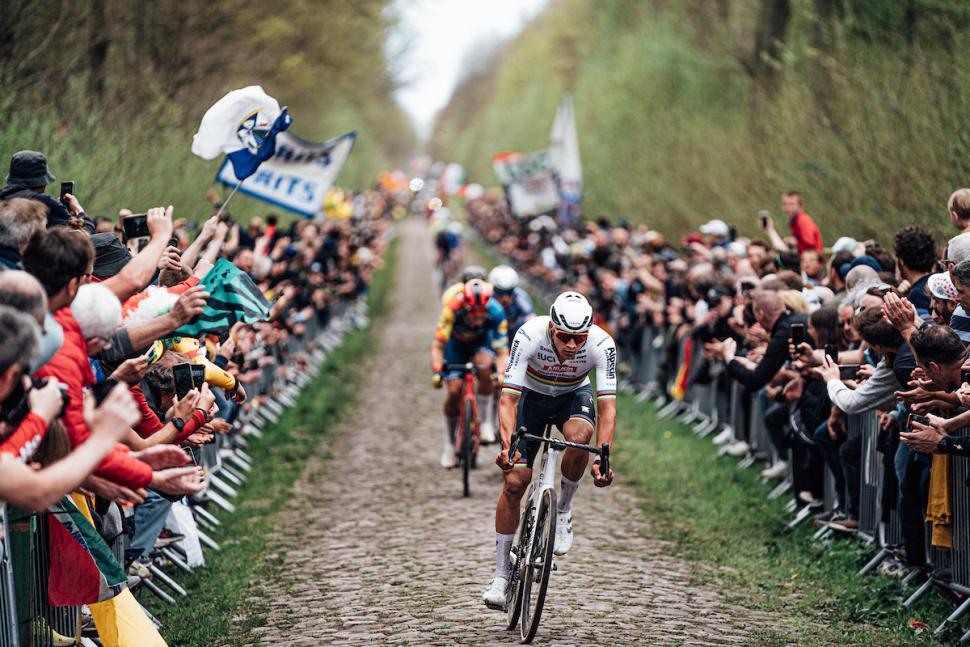Iannucci's Shifting Satire: Exploring A Decline In Impact

Table of Contents
The Evolution of Iannucci's Satirical Style
Tracing Iannucci's career reveals a fascinating evolution in his satirical techniques. From the raw, visceral style of his early works to the more nuanced approach in later projects, a clear stylistic shift is evident.
-
The Thick of It's impact stemmed from its unfiltered language and chaotic energy. The show's rapid-fire dialogue, unpredictable characters, and immersion in the brutal reality of political spin perfectly captured the anxieties and frustrations of the British political system. It was a masterclass in character-driven satire, allowing the absurdity of the situations to emerge organically from the flawed individuals navigating them.
-
Veep, while maintaining Iannucci's signature wit, adopted a more refined, almost sitcom-like structure. The satire, while still potent, felt more subtly woven into the narrative, often relying on situational irony and darkly comedic character interactions rather than the overtly aggressive style of The Thick of It. This shift toward a more polished comedic style broadened its appeal but arguably diminished the raw, visceral impact of his earlier work.
-
Avenue 5, Iannucci's space-based comedy, marked a significant departure. The satirical edge, while present, felt less focused and less consistently sharp. The plot-driven narrative, while entertaining, sometimes overshadowed the character development, leading to criticism that the satire felt less biting and more broadly comedic. The shift from character-driven satire to a more plot-centric approach arguably diluted the satirical potency.
-
This evolution highlights a movement from character-driven satire, heavily reliant on flawed individuals revealing the system's flaws, to a more plot-driven approach where the satirical elements are integrated into the narrative's progression. This change in focus might account for some of the perceived decline in impact.
The Changing Landscape of Political Satire
Iannucci's shifting satire needs to be understood within the broader context of a changing political and media landscape. The landscape of political humor has drastically evolved.
-
Increased Political Polarization: The heightened polarization of politics in recent years has made it incredibly challenging for satire to achieve a unifying effect. What one audience finds hilarious, another might find offensive or irrelevant. This creates a more fragmented and less receptive audience for political humor.
-
The Rise of Alternative Media: The proliferation of alternative media sources and the increasing distrust of traditional news outlets have complicated the reception of political satire. Audiences are now exposed to a wider range of viewpoints and interpretations, making it harder for satire to establish a universally accepted "truth" or perspective.
-
Evolving Audience Tolerance: Audience tolerance for political humor has also shifted. What was considered edgy and subversive a decade ago might now be seen as predictable or even insensitive. Satirists must constantly adapt to these changing expectations to remain relevant and impactful. This evolving tolerance and expectation of political humor directly affects the effectiveness of Iannucci's satire.
Critical Reception and Audience Response
Analyzing the critical and audience response to Iannucci's later projects sheds light on the perceived decline in impact.
-
Critical Reviews: While Veep enjoyed widespread critical acclaim, Avenue 5 received mixed reviews. Critics pointed to a perceived lack of consistent satirical bite and a reliance on broader, less incisive humor. These varied responses highlight the challenges of adapting satire to new contexts and audiences.
-
Audience Engagement: Online discussions and audience ratings reveal a divergence in opinion. While some viewers appreciated the evolution of Iannucci's style, others expressed disappointment, longing for the sharper, more aggressive satire of his earlier works. This discrepancy in audience reception underscores the complexities of navigating shifting tastes in humor.
-
Comparing Audience Engagement: Comparing engagement metrics like viewership numbers and online discussions across The Thick of It, Veep, and Avenue 5 reveals a potential trend of decreased engagement with his more recent work. This, however, needs to be considered alongside the changing media landscape and viewing habits.
The Role of Target Audience and Accessibility
The perceived decline in Iannucci’s satire’s impact might also be linked to its target audience and accessibility:
-
Niche Appeal: Has the satire become too niche, losing its appeal to a broader audience? The complexity of some of the satirical elements in later works might have alienated viewers looking for more readily accessible humor.
-
Subtlety vs. Impact: Has the humor become too subtle for a broad audience? While nuance can be a strength, it can also lead to a loss of impact if the satire is too obscure or requires significant prior knowledge to fully appreciate.
-
Platform Influence: The transition from the BBC (The Thick of It) to HBO (Veep, Avenue 5) likely influenced his comedic approach. HBO's platform, known for its sophisticated and often darker comedic offerings, may have encouraged a more nuanced and less overtly aggressive style, impacting the satire's accessibility and reach.
Conclusion
This article explored the evolution of Armando Iannucci's satirical style, examining the potential reasons behind a perceived decline in its impact. While his earlier works like The Thick of It remain powerful examples of political satire, the changing political landscape and evolving audience expectations may have influenced his more recent projects. Whether this represents a true decline in Iannucci's satirical prowess or simply an adaptation to a new era remains a subject for ongoing discussion. However, understanding these shifts is crucial for appreciating the evolution of his work and the broader context of political satire. Further analysis of Iannucci's satire is needed to fully grasp the complexities of his creative evolution and its ongoing impact on the genre. Continue the conversation and explore further the complexities of Iannucci's satire – your insights into the evolution of Iannucci's satire are vital!

Featured Posts
-
 Uefa Real Madrid Deki Mali Usulsuezluekleri Arastiriyor
May 25, 2025
Uefa Real Madrid Deki Mali Usulsuezluekleri Arastiriyor
May 25, 2025 -
 Zweite Liga Ade Der Hsv Ist Wieder Erstklassig
May 25, 2025
Zweite Liga Ade Der Hsv Ist Wieder Erstklassig
May 25, 2025 -
 Urgent Flood Warning Heed These Safety Guidelines From Nws
May 25, 2025
Urgent Flood Warning Heed These Safety Guidelines From Nws
May 25, 2025 -
 Roc Agel El Retiro De Charlene En La Propiedad Grimaldi
May 25, 2025
Roc Agel El Retiro De Charlene En La Propiedad Grimaldi
May 25, 2025 -
 Hsv Zurueck In Der Bundesliga Der Weg Zum Erfolg
May 25, 2025
Hsv Zurueck In Der Bundesliga Der Weg Zum Erfolg
May 25, 2025
Latest Posts
-
 Paris Roubaix Incident Spectator Confesses To Throwing Bottle At Van Der Poel
May 26, 2025
Paris Roubaix Incident Spectator Confesses To Throwing Bottle At Van Der Poel
May 26, 2025 -
 Paris Roubaix 2023 Van Der Poel Hit By Bottle Seeks Legal Recourse
May 26, 2025
Paris Roubaix 2023 Van Der Poel Hit By Bottle Seeks Legal Recourse
May 26, 2025 -
 Paris Roubaix Bottle Throwing Incident Spectator Surrenders To Police
May 26, 2025
Paris Roubaix Bottle Throwing Incident Spectator Surrenders To Police
May 26, 2025 -
 Man Who Threw Bottle At Van Der Poel At Paris Roubaix Arrested
May 26, 2025
Man Who Threw Bottle At Van Der Poel At Paris Roubaix Arrested
May 26, 2025 -
 Paris Roubaix Spectator Who Threw Bottle At Van Der Poel Turns Himself In
May 26, 2025
Paris Roubaix Spectator Who Threw Bottle At Van Der Poel Turns Himself In
May 26, 2025
